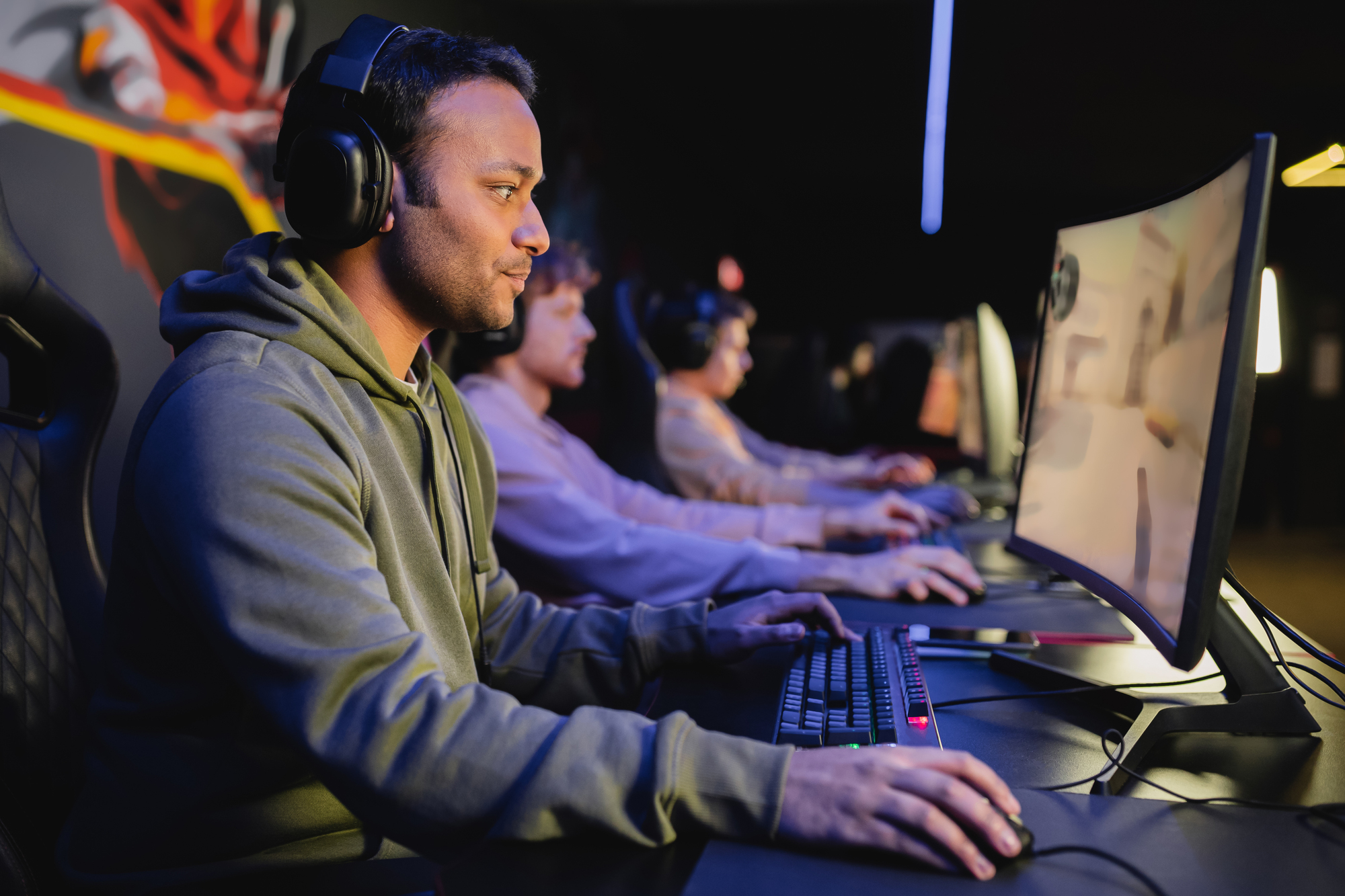Video games have profoundly shaped global digital culture over the past few decades. As interactive digital media, they have become a significant force in entertainment, education, and social interaction worldwide. Video games are transforming how people communicate and engage with digital content, influencing cultural norms and practices across societies.
The cultural impact of video games extends far beyond mere entertainment. Research has shown that video games act as tools for cultural dissemination, reflecting and shaping societal values, norms, and ideologies. They provide immersive experiences that allow players to explore diverse virtual worlds, fostering cross-cultural understanding and empathy.
The influence of video games on global digital culture is particularly evident in how they shape social interactions and communication. Online multiplayer games create virtual communities where people from different backgrounds collaborate and compete, developing new forms of digital social norms. This technological transformation has led to the emergence of a global gaming culture that transcends geographical boundaries whilst still reflecting regional influences and cultural asymmetries.
The Evolution of Gaming Culture
Video games have profoundly shaped global digital culture over the past several decades. Their impact extends far beyond entertainment, influencing art, education, and social interaction.
Historical Milestones and Technological Advancements
The gaming industry’s growth has been marked by significant technological leaps. In the 1970s, arcade games like Pong captured public interest. The 1980s saw the rise of home consoles such as the Nintendo Entertainment System, bringing gaming into living rooms worldwide.
Personal computers expanded gaming’s reach in the 1990s, while the 2000s ushered in online multiplayer experiences. Mobile gaming took off in the 2010s with smartphones, making games accessible to billions.
Each advancement broadened gaming’s appeal and cultural significance. From pixelated sprites to photorealistic 3D graphics, technological progress has enabled more immersive and complex game worlds.
Video Games as Cultural Artefacts
Games now serve as important cultural touchstones. They reflect and influence societal values, norms, and artistic trends. Many games explore serious themes like war, politics, and human relationships.
Museums have begun collecting and exhibiting video games, recognising their artistic and historical value. The British Museum has featured exhibits on gaming history, highlighting their role in cultural preservation.
Games also function as tools for cultural transmission. They introduce players to new ideas, historical periods, and fantastical worlds. This capacity for cultural innovation has made gaming a powerful medium for education and artistic expression.
Cultural Dynamics in Video Games
Video games have become a significant medium for cultural expression and exchange. They reflect and shape societal values, norms, and beliefs across different cultures.
Representation and Diversity in Gaming
Video games increasingly feature diverse characters and storylines. This shift reflects growing awareness of the importance of cultural representation in digital media. Game developers are incorporating characters from various ethnic backgrounds, genders, and sexual orientations.
Character customisation options allow players to create avatars that represent their identities. This inclusivity helps players feel more connected to the game world and its stories.
Some games explore specific cultural traditions and histories. For example, games set in ancient civilisations often showcase historical architecture, clothing, and customs.
Cultural Dissemination and Cultural Elements
Video games serve as powerful tools for cultural dissemination. They introduce players to new cultural concepts, traditions, and perspectives. Many games incorporate elements from various cultures in their storylines, art styles, and music.
Some genres, like role-playing games, often draw inspiration from specific cultural mythologies and folklore. This exposure can spark interest in learning more about different cultures.
Games can also preserve and promote endangered cultural practices. For instance, some indigenous communities use games to teach traditional languages and customs to younger generations.
The Role of Mass Media and Online Communities
Mass media significantly influences how video game culture is perceived and discussed. News outlets, gaming websites, and social media platforms shape public opinion about games and their cultural impact.
Online gaming communities play a vital role in fostering cultural exchange. Players from different backgrounds interact, share experiences, and learn about each other’s cultures through gameplay and discussions.
Streaming platforms and esports events have created new forms of cultural participation. These platforms allow gamers to showcase their skills and connect with audiences worldwide, bridging cultural gaps.
The Societal Impact of Video Gaming
Video games have profoundly influenced modern society, affecting education, social interactions, and psychological well-being. They have become a significant cultural force, shaping how people learn, connect, and view the world.
Educational Context and Non-Formal Learning
Video games have become a powerful tool for non-formal learning. They offer immersive experiences that can enhance cognitive skills, problem-solving abilities, and creativity. Many educational institutions now incorporate gaming elements into their curricula to boost engagement and retention.
Games designed for educational purposes often tackle complex subjects in accessible ways. For example, historical strategy games can teach players about past civilisations and geopolitics. Similarly, puzzle games can improve spatial reasoning and logical thinking.
The interactive nature of video games also promotes active learning. Players must make decisions, face consequences, and adapt their strategies, fostering critical thinking and adaptability.
Social Influence and Community Building
Video games have transformed social interactions, creating vast online communities and new forms of communication. Multiplayer games allow people from different corners of the globe to collaborate, compete, and form friendships.
These virtual spaces often serve as platforms for cultural exchange. Players encounter diverse perspectives and customs, potentially fostering greater cross-cultural understanding.
Gaming communities have also given rise to new social phenomena. Esports, for instance, has grown into a billion-pound industry with professional players, dedicated fans, and large-scale tournaments.
Psychological and Ethical Considerations
The psychological impact of video games remains a topic of intense study and debate. Some research suggests that gaming can improve cognitive functions such as attention, memory, and decision-making speed.
However, concerns about addiction and excessive gaming persist. The World Health Organisation has recognised ‘gaming disorder’ as a mental health condition, highlighting the need for balanced and responsible gaming habits.
Ethical considerations in game design have gained prominence. Issues such as in-game monetisation, representation of diverse groups, and the portrayal of violence are now key topics in the industry and among players.
Game developers increasingly focus on creating experiences that promote empathy and social awareness. Some games tackle serious issues like mental health, environmental conservation, and social justice, potentially influencing players’ real-world attitudes and behaviours.
Emerging Trends and the Future of Virtual Interaction
Virtual interaction is rapidly evolving, with new technologies shaping how people engage with digital content and each other. The rise of virtual reality and open-world games is transforming interactive entertainment, whilst gamification is influencing various aspects of culture and society.
The Rise of Virtual Reality and Open-World Experiences
Virtual reality (VR) is revolutionising digital games and immersive experiences. VR headsets transport users to fully realised digital environments, allowing for unprecedented levels of immersion and interaction. This technology is enhancing collaboration in virtual spaces, enabling people to work and socialise in shared digital realms.
Open-world video games are expanding in scope and detail. These vast digital landscapes offer players freedom to explore and create their own narratives. The complexity of these worlds fosters creativity and problem-solving skills.
As VR and open-world games advance, they’re likely to blend, creating expansive virtual universes where users can interact in increasingly lifelike ways. This convergence could lead to new forms of social interaction and cultural expression.
Gamification and its Effects on Cultural Practices
Gamification is the application of game-design elements to non-game contexts. This trend is influencing various aspects of daily life, from education to workplace productivity.
In education, gamified learning platforms are making academic subjects more engaging. Students interact with course material through quests, challenges, and rewards, potentially improving retention and motivation.
The workplace is also adopting gamification techniques. Companies are using points systems, leaderboards, and virtual badges to boost employee engagement and productivity. This approach is changing how organisations manage and motivate their workforce.
Cultural institutions are incorporating gamification to enhance visitor experiences. Museums and galleries are creating interactive exhibits that blend physical artefacts with digital elements, encouraging active participation and deeper engagement with cultural heritage.












